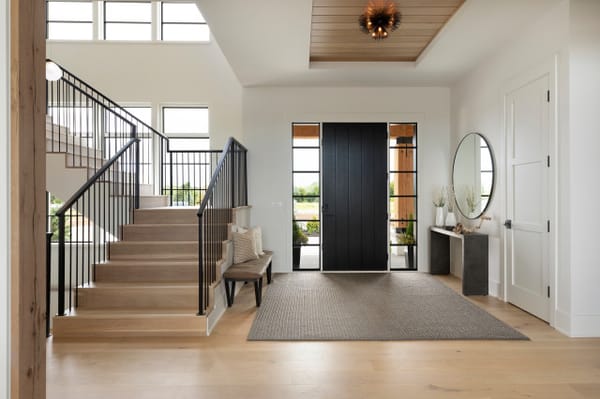How to Create a Construction Budget?

Creating a construction budget might seem daunting, but with the right approach, you can manage your finances effectively and ensure your project stays on track. Let's dive into the steps and tips to create a solid construction budget.
Why is a Construction Budget Important?
Before we get into the nuts and bolts of creating a budget, let's talk about why it's crucial. A well-planned budget helps you:
- Avoid unexpected expenses
- Keep track of costs
- Ensure you have enough funds to complete the project
- Make informed decisions
Step-by-Step Guide to Creating a Construction Budget
1. Define Your Project Scope
What are you building? A clear project scope is the foundation of a solid budget.
Key Points:
- List all the elements of your project (e.g., rooms, floors, facilities)
- Specify the quality and type of materials you want to use
- Detail any special features or custom designs
2. Research Costs
Next, gather information on the costs associated with your project.
Tips for Accurate Cost Estimation:
- Material Costs: Contact suppliers or use online resources to get current prices for materials.
- Labor Costs: Get quotes from contractors and consider the hourly rates for any hired help.
- Permits and Fees: Check with local authorities to understand the permits and fees required.
- Unexpected Costs: Add a buffer (usually 10-20%) to cover any unforeseen expenses.
3. Break Down the Budget
Divide your budget into categories to make it easier to manage and track.
Categories Might Include:
- Materials: Concrete, wood, fixtures, paint, etc.
- Labor: Contractor fees, subcontractor fees, hourly wages.
- Permits and Fees: Building permits, inspection fees.
- Equipment: Rental or purchase of machinery and tools.
- Miscellaneous: Utilities, transportation, contingency funds.
4. Prioritize Your Spending
Sometimes, you might have to adjust your plans based on budget constraints. Prioritize what's most important.
Questions to Ask:
- What are the must-haves versus the nice-to-haves?
- Where can you compromise without affecting the project’s quality?
- Are there any stages of the project that can be postponed if necessary?
5. Monitor and Adjust
A budget is not a set-it-and-forget-it tool. Regularly monitor your spending and make adjustments as needed.
Best Practices:
- Track Expenses: Keep a detailed record of every expense.
- Compare with Budget: Regularly compare actual expenses with your budget.
- Adjust Accordingly: If you’re overspending in one area, look for ways to cut costs in another.
6. Seek Professional Advice
If budgeting feels overwhelming, don’t hesitate to seek professional help.
Benefits of Professional Advice:
- Expertise in accurate cost estimation
- Access to industry insights and resources
- Help in negotiating better deals with suppliers and contractors
Pro Tips for Effective Construction Budgeting
- Stay Flexible: Be prepared to make changes as the project progresses.
- Communicate Clearly: Ensure everyone involved understands the budget and their role in maintaining it.
- Document Everything: Keep all receipts, invoices, and contracts organized.
- Regular Reviews: Schedule regular budget reviews to stay on top of finances.
Creating a construction budget doesn’t have to be intimidating. With clear planning, detailed research, and regular monitoring, you can keep your project on track and within budget. Ready to get started on your dream project? Contact Aviratha Builders today for expert consultation and personalized budgeting assistance!




